
Sands ,a medical oncologist who specializes in lung cancer, says the false discovery has been misconstruted as a false positive rate. He also makes a case for early detection and new USPSTF as working to correct disparities.

Sands ,a medical oncologist who specializes in lung cancer, says the false discovery has been misconstruted as a false positive rate. He also makes a case for early detection and new USPSTF as working to correct disparities.

Researchers identified being Black and of the female gender as the strongest predictors of late-stage diagnosis.
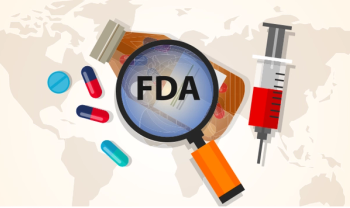
With many offices and schools reopening, social distancing rules being eased, and mask requirements being eliminated for the vaccinated, we’re beginning to get a glimpse into Life After COVID. But we’re not out of the woods yet—and we can lay some of the blame at the feet of the U.S. Food and Drug Administration.

Merck will withdraw Keytruda's advanced gastric indication after an FDA panel vote, a drug with supply problems gets a new indication, NDAs for an HIV therapy, and other news.

The move follows an April 29 vote by the FDA Oncology Drugs Advisory Committee.

If the preliminary findings are validated in larger studies, the method could help clinicians determine which patients are candidates for immune checkpoint inhibitor therapy.

Positive findings for resmetirom and icosabutate were presented at the meeting in June.
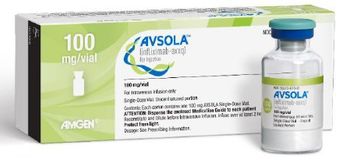
Patients are being offered $500 to make the switch.
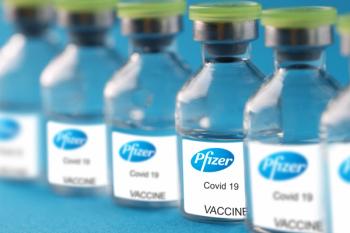

Data presented at the virtual Sleep 2021 meeting by the Annual American Academy of Sleep Medicine suggests treating sleep apnea or obstructive sleep apnea is important for heart health and better prevents chances of COVID-19.

In this week's episode of "Tuning In to the C-Suite" podcast, Managed Healthcare Executive Senior Editor, Peter Wehrwein and Associate Editor, Briana Contreras, spoke with yet another Editorial Advisory Board Member for a segment of the "Meet the Board" series. The two had the pleasure of chatting with Meg Murray, M.P.A., founding CEO of the Association for Community Affiliated Plans, about her journey in healthcare, her organization and were able to look into some of her views about the ACA, equity and racism in healthcare and the Biden Administration’s effects on healthcare.

A recent study finds that the approval of a biosimilar was associated with a change in the trajectory of net prices.

Data from a phase 2/3 study will be presented in July.

COVID-19 forced providers and health plans to hit the brakes on traditional approaches to managing care—and then continue the journey in another vehicle, at a pace that seemed to approach 100 miles per hour.

But there is no benefit for patients receiving chemotherapy.

Direct contracting between employers and providers is rare but could have some genuine advantages for both parties — and for patients. But providers need to prepare and plan if they are going to get into direct contracting.

Kite plans to submit a supplemental BLA based on these findings.

The authorization is based on four studies that evaluated Actemra in more than 5,500 hospitalized patients.

Multisystem Inflammatory Syndrome in Children (MIS-C) significantly affected more Black and Latino children than white children, with Black children at the highest risk, according to a new observational study of 124 pediatric patients treated at Children's National Hospital in Washington, D.C.

Implementation of value-based approaches requires measurement of value, authors said.

The administration seems more interested in using Medicaid than Medicare as a tool for extending health insurance coverage to more Americans, notwithstanding all the debate about Medicare for all last year.

The healthcare challenges of tomorrow will require collaborative efforts from healthcare organizations, healthcare leaders, and federal and state governments.

Investigators looked at the association of antiparasitic drug prices with prescribing and prescription-filling behaviors and total outpatient treatment costs.

The start-up aims to develop real-world evidence that provides value to patients, insurers, and employers.

We may never know where the virus came from, but the development and rollout of the COVID-19 vaccines has been the medical miracle of our lifetime.
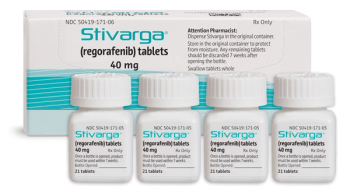
The anticancer therapy is now available in 21-count bottles to help accommodate dispensing.

Fifty-three percent of Latinx and 49% of Black Medicare beneficiaries choose enrollment in Medicare Advantage; seeing average annual savings of $1,113 and $1,270, respectively, compared to Traditional Medicare.

With more than 50 million Americans suffering from allergies each year, it’s critical for primary care physicians to play a pivotal role in appropriately managing asthma and allergic diseases.
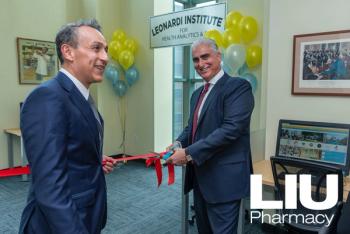
The two organizations have created a fellowship program to help improve patient outcomes and reduce costs.

Positive findings for Tepmetko and Tabrecta reported at ASCO.